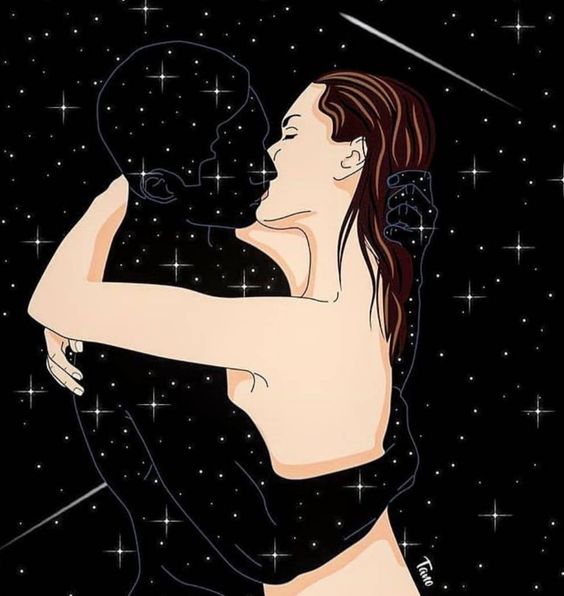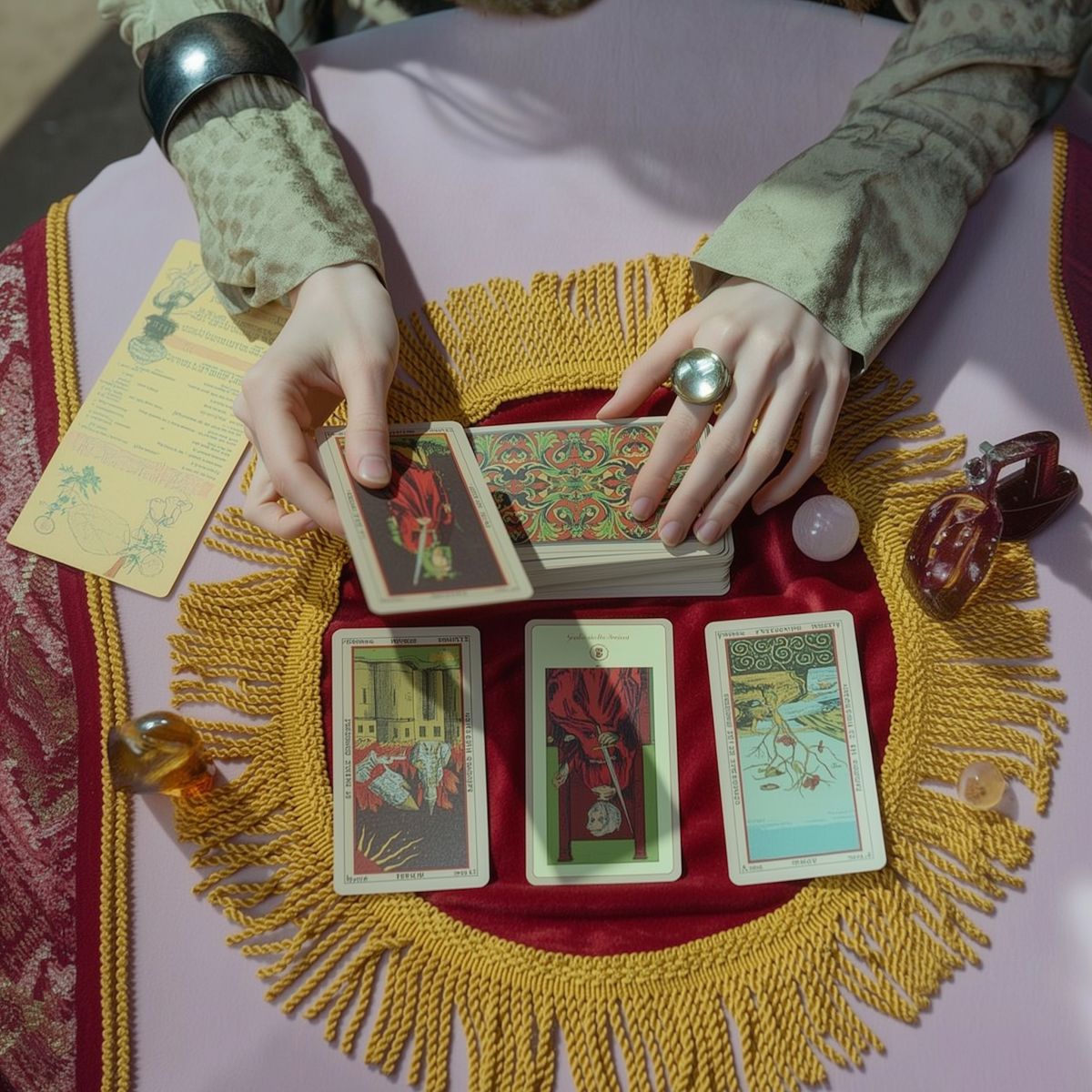
The Astrology of Cheating
 When exploring the astrological patterns behind infidelity, a closer look at the cheater’s horoscope reveals some intriguing connections between deceit and certain transits. While the study doesn’t explore the experiences of the betrayed partners, it does highlight compelling details in the charts of those who cheat. One key pattern stands out: many individuals who engage in infidelity have transiting Neptune squaring the Sun and/or Mars at the time of their actions. In astrological terms, this transit often reflects a deep sense of disillusionment—particularly with one’s life direction or marriage. From the astrologer’s perspective, these affairs may be rationalized by the cheater as a response to an internal dissatisfaction. In their mind, the betrayal feels justified, fueled by a pervasive sense that something vital is missing in their current reality.
When exploring the astrological patterns behind infidelity, a closer look at the cheater’s horoscope reveals some intriguing connections between deceit and certain transits. While the study doesn’t explore the experiences of the betrayed partners, it does highlight compelling details in the charts of those who cheat. One key pattern stands out: many individuals who engage in infidelity have transiting Neptune squaring the Sun and/or Mars at the time of their actions. In astrological terms, this transit often reflects a deep sense of disillusionment—particularly with one’s life direction or marriage. From the astrologer’s perspective, these affairs may be rationalized by the cheater as a response to an internal dissatisfaction. In their mind, the betrayal feels justified, fueled by a pervasive sense that something vital is missing in their current reality.
When Neptune squares the Sun, people often feel as if their sense of identity is dissolving. They’re drifting, yearning, maybe even hoping for some form of transcendence. “Is this all there is?” they ask, staring across the dinner table at a partner who’s arguing about bills. When Neptune casts its spell over the Sun—the seat of identity, the epicenter of who one believes themselves to be—something essential begins to fade. One wakes up not knowing quite who they are anymore. This isn’t always overtly dramatic. Sometimes it’s quiet, creeping, the way fog moves slowly over familiar ground until you can’t quite see your own feet. This is the spiritual erosion of Neptune square Sun: you’re still living your life, but suddenly it doesn’t feel like yours. In the case of Mars, Neptune’s effect is more carnal, but no less confusing. Mars wants action, assertion, sex, conquest. But Neptune is the ocean, and it doesn’t assert—it seduces, it confuses, it romanticizes. So when Neptune and Mars square off, desire becomes more about escape. A longing for intimacy becomes a hunger for transcendence, and sex turns into something symbolically sacramental, a faux-religious act of meaning in a life that suddenly feels meaningless.
Infidelity often arises from emptiness. People cheat, astrologically speaking, because they are spiritually starving. They do not seek the affair; they seek themselves, though they often do not realize it until long after the damage is done. And because Neptune obscures reality, they often lie—not just to their partners, but to themselves. The affair feels like a solution. Of course, it’s rarely divine. One sees soulmates where there are stand-ins, essentially distractions.
Perhaps the cheating, while never justifiable, is often understandable when seen as a symptom of deeper existential disquiet. The chart doesn’t absolve, but it does illuminate. And through this illumination, there lies a possibility of understanding the betrayal, and healing the soul beneath it. Because at the end of every square, every misalignment, every torrid Neptunian delusion—there is still the possibility of integration, of waking up from the dream and choosing, finally, to be real.
In mythology, Neptune (or Poseidon) ruled the oceans: vast, uncontainable, and deeply symbolic of the subconscious. In astrology, he carries the same mystery. He is the part of us that dreams, idealizes, sacrifices… but also escapes, evades, and deceives. He represents the hunger for transcendence in a world that often feels tragically mundane. So when Neptune’s influence bears down on someone—particularly through a square to the Sun or Mars—it can warp perception. One feels dissatisfied, spiritually adrift, as though the soul itself has gone a bit translucent. Commitments, promises, even one’s own values can begin to seem optional, parts of a former life. Neptune doesn’t destroy these things—he simply lulls you into forgetting why they mattered.
And this is the heart of the psychological entanglement: the cheater, under Neptune’s spell, is quite often, drowning. In a weariness that arises when reality has become too grey. The affair becomes a lifeline. A beautifully tragic delusion, lovingly constructed to save the self from a confrontation it isn’t yet ready to face. But this salvation, of course, is never stable. Because Neptune does not offer anchorage. He offers immersion. And so, what begins as a coping mechanism becomes a full-on identity crisis. The cheater isn’t just betraying their partner—they’re often betraying a former version of themselves, the one who once believed in monogamy, in integrity, in shared futures.
The astrologer is not a judge but a translator—decoding these starry symbols, pointing to the aching wound beneath it. Beneath the glistening fantasy of Neptune is often a desperate call for connection, for meaning, for something real enough to hold onto in a world that keeps slipping through the fingers. It’s the story of longing, of the human need to believe in something greater, even if—especially if—that belief leads us astray. It’s the story of how far we’ll go for what we think love might finally mean.
A Sea of Ambiguity
Neptune doesn’t simple whisper sweet nothings into the ear of the psyche, but rather immerses the entire soul in a sea of ambiguity. Here, within this swirling blend of desire, delusion, and doubt, we begin to truly see how Neptune’s influence entwines with the human tendency toward dishonesty. Personal dishonesty in the context of Neptune isn’t always malicious. More often, it’s a kind of quiet self-abandonment, a slipping away from the hard-edged truths that feel too stark to face head-on. When Neptune transits square key natal points—especially those linked to identity, action, or moral compass—it softens, it confuses, and ultimately, it obscures. And this is when the cheating heart may make its most fateful move—in a haze of irrational motives.
The lack of firm internal boundaries is central to Neptune’s theatre. Those influenced heavily by Neptune, especially during intense transits, may struggle to distinguish their needs from others’, their feelings from facts, their fantasies from what’s actually occurring in the light of day. And so, when a person in a committed relationship begins to feel a surge of longing, it’s often a projection of unmet needs, a hallucinated salvation. They’re not just lying to their partner—they’re believing the very lies they’re telling.
And this is where the guilt takes on a haunting form. Because somewhere, buried beneath the glamour of the affair and the justifications built on shifting sands, the self knows. There is a dissonance. Neptune may cloud the mind, but it doesn’t completely silence the soul. This is why the emotional aftermath of a Neptunian deception often includes not just regret, but a kind of existential vertigo. “Who was I when I did that?” the person asks. “What was real? What did I actually feel?” And that, perhaps, is Neptune’s final trick: making us question our choices, and our entire identity. It forces us to reckon with the parts of ourselves that we have hidden—not only from the world, but from our own conscious awareness. It draws out our longing for something more, something ineffable, something holy… and then watches as we try to pour that longing into a person, or an affair, or an illusion.
What Neptune ultimately demands is transcendence. And the tragedy is that so many try to leap toward this divine realm by abandoning their earthly integrity. The true lesson, perhaps, is not to indulge every fantasy, but to question what those fantasies are telling us about our unmet needs, our unlived dreams, and the wounds we’re still carrying.
Guilt, under Neptune’s gaze, isn’t the clear sting of conscience one might associate with Saturnian remorse. Neptunian guilt is diffuse, melancholic, almost poetic. It’s the sense that something’s been lost— a moral standard, but also part of the self that once believed in something pure. The cheater doesn’t merely feel bad; they feel haunted. Not by what they’ve done, but by who they’ve become in doing it. And it’s in this state of soul-sickness the search begins—for the redeemer.
The redeemer is rarely chosen with logic. This isn’t a partner selected for their compatibility or grounded qualities. This is someone anointed with meaning, often without their knowledge or consent. They are cast in a role: savior, muse, healer, divine other. The individual under Neptune’s influence projects a whole opera of longing onto them—visions of escape, of rebirth, of finally being seen and known in the way they believe they were meant to be. The redeemer becomes a mirror of who the seeker wishes they themselves could be.
But of course, this projection is unsustainable. The redeemer, being human, eventually falters. The fantasy cracks, the veil slips, and the disillusionment returns, often more crushing than before. It’s the brutal beauty of Neptune: it gives you the vision, then takes it away, so you’re forced to see what it was reflecting about you all along. The redeemer isn’t the villain in this tale—they’re the stand-in for something far older and more essential: the quest for union with the divine, for wholeness, for healing. It’s just that the individual, under Neptune’s spell, forgets that the divine they’re looking for can’t be found in another, at least not in the way they hope. That kind of salvation—lasting, deep, and truly redemptive—must be cultivated inwardly, through self-awareness, forgiveness, and sometimes, heartbreak.
So when Neptune transits and someone goes wandering into another’s arms, it isn’t always just about passion or lust. Sometimes, it’s a desperate prayer to be rescued from themselves. And while the redeemer might offer a temporary sanctuary, they can’t carry the weight of that salvation forever. In the end, Neptune teaches us that the love we seek outside must first be reclaimed within. Otherwise, no matter how beautiful the redeemer, the fantasy will dissolve, and the longing will return, undiminished, and unresolved.
The Guilty Ones
Clark Gable
During the production of “The Call of the Wild” in 1935, Clark Gable engaged in an on-set affair with Loretta Young. This liaison resulted in Young conceiving a child, a fact carefully concealed from the public eye. At the time, Pluto was concluding its opposition to Venus, coinciding with Neptune’s conjunction with Mars in Gable’s astrological chart. Throughout the affair, Loretta experienced the influence of transiting Neptune forming a trine aspect with both the Sun and the Moon.
Humphrey Bogart
Humphrey Bogart found himself entangled in an extramarital affair with the 19-year-old Lauren Bacall while still married to his 45-year-old wife, Kim Novak. Bogart faced a dilemma as his affections shifted towards the younger Bacall, prompting him to make a choice between his existing marriage and this newfound love. Eventually, he decided to end his marriage with Novak and pursue a relationship with Bacall.
In Bogart’s astrological chart, transiting Neptune was in a square aspect with both the Sun and Mars. This astrological alignment suggests a period of confusion and potential illusions in matters of identity and desire. On the other hand, Bacall, seemingly unaware of the complexities, did not experience any Neptune transits. However, transiting Saturn was crossing her Sun, a traditional indication of attraction to an older partner. In astrology, Saturn is associated with maturity and wisdom, and when it transits a person’s Sun, it often signifies a time to commit and make lasting promises.
Ingrid Bergman
The affair between Ingrid Bergman and Roberto Rossellini marked one of the most scandalous episodes of its time, leading to Bergman’s pregnancy and subsequent exile from the United States. During this tumultuous period, Ingrid’s Sun and Venus were both under the influence of Saturn’s transits, intensifying the challenges within her relationships. The weight of scrutiny and personal hostility from others added to her difficulties. The inception of her affair with the Italian director coincided with transiting Uranus conjuncting Mars, evoking restlessness and a desire for adventure.
In Bergman’s astrology, the square aspect between transiting Neptune and her natal Mars hinted at potential sexual deceit and illusions. Meanwhile, in Rossellini’s chart, Neptune formed a trine with Venus and Mars, while transiting Saturn squared Venus, contributing to feelings of humiliation and betrayal. Rossellini grappled with emotionally taxing situations as transiting Pluto squared his Sun and Moon, further complicating his personal affairs.



















 Venus-Pluto Synastry: A Love So Powerful That It Might Just Kill Them
Venus-Pluto Synastry: A Love So Powerful That It Might Just Kill Them
 Moon Conjunct Pluto Synastry
Moon Conjunct Pluto Synastry
 Mars-Saturn Synastry: The Eternal Loop
Mars-Saturn Synastry: The Eternal Loop
 Mars Opposite Pluto Natal Aspect: Live Passionately or Burn Silently
Mars Opposite Pluto Natal Aspect: Live Passionately or Burn Silently
 Sun Square Pluto Synastry: You’ve Got That Power Over Me
Sun Square Pluto Synastry: You’ve Got That Power Over Me
 Mars-Pluto Synastry: Something Quite Dark and Dangerous
Mars-Pluto Synastry: Something Quite Dark and Dangerous
 Scorpio’s Cold Withdrawal
Scorpio’s Cold Withdrawal
 The Cost of Living Through the Eyes of Sagittarius
The Cost of Living Through the Eyes of Sagittarius
 Reflections on a Past Venus-Pluto Synastry Aspect
Reflections on a Past Venus-Pluto Synastry Aspect
 Venus Trine Mars Synastry
Venus Trine Mars Synastry
 Pluto in the 12th House
Pluto in the 12th House
 Mars in the 7th House: When Passion Picks a Partner
Mars in the 7th House: When Passion Picks a Partner
 T-Squares
T-Squares
 Uranus Transits: 1st House: Winds of Change:
Uranus Transits: 1st House: Winds of Change:
 South Node in Scorpio or 8th House
South Node in Scorpio or 8th House
 Neptune in the 4th House
Neptune in the 4th House
 Mars-Saturn Synastry: Under Saturn’s Thumb: Exploring the Depths of Intimacy and Commitment
Mars-Saturn Synastry: Under Saturn’s Thumb: Exploring the Depths of Intimacy and Commitment
 Uranus Transits 8th the House: Rebirth from Chaos
Uranus Transits 8th the House: Rebirth from Chaos
 Pluto on the Midheaven: Your Inner Force for Transformation
Pluto on the Midheaven: Your Inner Force for Transformation
 Neptune in the 3rd House: The Power of Imagination
Neptune in the 3rd House: The Power of Imagination